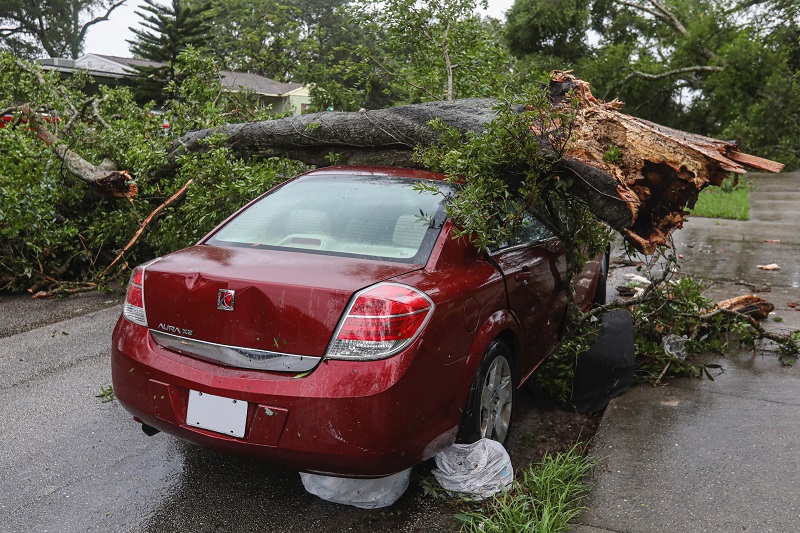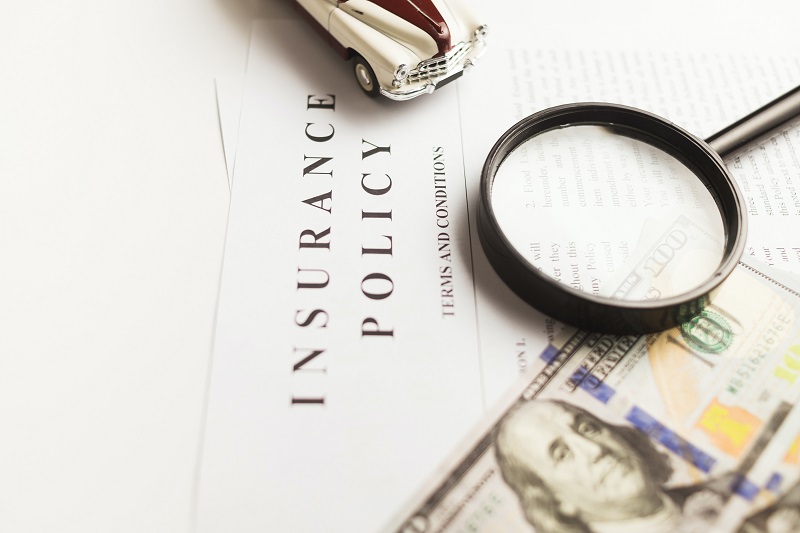Introduction
Comprehensive Insurance in the U.S. is often a misunderstood and underappreciated aspect of auto insurance. Many drivers are unsure about what Comprehensive Insurance entails, how it differs from other types of insurance, and whether it is worth the extra cost. So let’s take a look at what exactly is involved.
Understanding What Comprehensive Insurance Covers

Comprehensive Insurance covers damage to your vehicle caused by incidents other than a collision. This can include various scenarios, such as:
- Theft: If your vehicle is stolen, Comprehensive Insurance will cover the cost to replace it up to its actual cash value (ACV) at the time of the theft.
- Vandalism: If your vehicle is vandalized, comprehensive coverage will pay for the cost of repairs or replacement, depending on the extent of the damage.
- Natural Disasters: Comprehensive Insurance covers damages caused by natural disasters such as floods, hurricanes, tornadoes, earthquakes, and hailstorms.
- Falling Objects: If your vehicle is damaged by a falling object, such as a tree branch or debris from a construction site, Comprehensive Insurance will cover the cost of repairs or replacement.
- Animal-Related Damages: If your vehicle is damaged in an accident involving an animal, such as hitting a deer or having a bird fly into your windshield, Comprehensive Insurance will cover the cost of repairs or replacement.
- Fire: Comprehensive coverage will pay for damages to your vehicle caused by fire, whether it’s due to an electrical malfunction or an external source.

It’s important to note that Comprehensive Insurance does not cover damages to your vehicle resulting from a collision with another vehicle or object. These types of damages are covered under a separate type of insurance called Collision Insurance.
What Comprehensive Insurance Doesn’t Cover

While Comprehensive Insurance provides extensive coverage for various non-collision-related damages, there are some scenarios it does not cover. These include:
- Damage to Another Person’s Property: Comprehensive Insurance only covers damages to your vehicle. If you are involved in an accident that results in damage to someone else’s property, such as their vehicle or a fence, you will need liability insurance to cover those costs.
- Injuries to Yourself or Others: Comprehensive Insurance does not cover medical expenses related to injuries sustained in an accident. This is covered by Personal Injury Protection (PIP) or medical payments coverage, depending on your state’s requirements.
- Collision-Related Damages: As previously mentioned, Comprehensive Insurance does not cover damages resulting from a collision. For this type of coverage, you will need to have Collision Insurance.
- Wear and Tear: Comprehensive Insurance does not cover normal wear and tear on your vehicle, such as deteriorating paint or worn-out tires. These costs are typically the responsibility of the vehicle owner.
- Custom Parts/Accessories or Equipment: Comprehensive Insurance generally does not cover damages to custom parts or equipment installed on your vehicle, such as aftermarket stereo systems, rear boot spoilers or custom wheels. You may need to purchase additional coverage for these items.
Advantages and Disadvantages of Comprehensive Insurance
There are several advantages and disadvantages to consider when deciding whether Comprehensive Insurance is right for you. Some of the advantages include:
- Protection from a Wide Range of Incidents: Comprehensive Insurance covers a broad spectrum of non-collision-related damages, providing you with peace of mind knowing your vehicle is protected in various situations.
- Financial Security: In the event of a significant loss, such as your vehicle being stolen or severely damaged by a natural disaster, comprehensive insurance can provide you with financial security by covering the cost of repairs or replacement.
- Potential Savings in the Long Run: While Comprehensive Insurance does come with an additional cost, it can potentially save you money in the long run if you experience a significant loss that would otherwise be costly to repair or replace out of pocket.
However, you may want to consider the disadvantages:
- Additional Cost: Comprehensive Insurance is not required by law in most states, meaning it is an optional coverage that comes with an additional cost. You will need to weigh the benefits against the cost to determine if it is worth it for you.
- Deductible: Like Collision Insurance, comprehensive coverage is typically subject to a deductible. This means you will need to pay a certain amount out of pocket before your insurance coverage kicks in.
- It’s Not Always Necessary: Depending on factors such as the age and value of your vehicle, comprehensive insurance may not be necessary. If your vehicle is older and has a low value, the cost of comprehensive coverage may outweigh the potential benefits.
Factors Affecting the Cost of Comprehensive Auto Insurance
Several factors can influence the cost of Comprehensive Auto Insurance, including:
- Vehicle Make and Model: The cost of Comprehensive Insurance can vary depending on the make and model of your vehicle. Expensive, high-end vehicles typically cost more to insure, as they are more costly to repair or replace.
- Vehicle Age: Older vehicles are generally less expensive to insure, as they have a lower actual cash value (ACV) compared to newer vehicles.
- Your Location: Where you live can impact the cost of Comprehensive Insurance. Areas with a higher risk of theft, vandalism, or natural disasters may result in higher premiums.
- Deductible: The deductible you choose for your Comprehensive Insurance will also affect the cost. A higher deductible generally results in a lower premium, while a lower deductible will result in a higher premium.
- Driving History: Your driving history, including any accidents or violations, can influence the cost of Comprehensive Insurance. Lower rates are typically offered to drivers with a clean driving record.
- Credit Score: Your credit score may also play a role in determining your Comprehensive Insurance premium, as insurance companies often use credit-based insurance scores to assess risk.
- Vehicle Modifications: Any after-market accessories or modifications will greatly affect how much you pay for Comprehensive Insurance.
How Much Does Comprehensive Auto Insurance Cost in 2023?
The cost of Comprehensive Auto Insurance can vary significantly depending on the factors outlined above. However, it’s essential to obtain quotes from multiple insurance providers to get an accurate estimate of the cost based on your unique circumstances.
To give you a general idea, Comprehensive Insurance premiums can range anywhere from $100 to $500 per year or more, depending on factors such as your vehicle, location, and chosen deductible. Keep in mind that this is an additional cost on top of your basic auto insurance coverage, which includes liability, Personal Injury Protection (PIP), and uninsured/under-insured motorist coverage.
Deciding if Comprehensive Insurance is Right for You
What to consider when making your decision:
- Vehicle value: If you have a newer, high-value vehicle, Comprehensive Insurance may be worth the investment to protect against potential loss.
- Loan or lease: If you have a loan or lease on your vehicle, your lender may require comprehensive coverage to protect their investment.
- Geographic location: If you live in an area prone to theft, vandalism, or natural disasters, Comprehensive Insurance may provide valuable protection.
- Risk tolerance: Consider your personal risk tolerance and whether you would be comfortable paying out of pocket for non-collision-related damages to your vehicle in the absence of Comprehensive Insurance.
If you’re still unsure whether comprehensive insurance is right for you, it may be beneficial to speak with an insurance agent who can help you assess your needs and provide further guidance.
Tips for finding the best comprehensive insurance policy
To find the best comprehensive insurance policy for your needs, consider the following tips:
- Shop around: Obtain quotes from multiple insurance providers to compare coverage options and pricing. Don’t be afraid to ask questions or request additional information to ensure you have a clear understanding of the policy terms.
- Consider bundling: Many insurance companies offer discounts for bundling multiple policies, such as home and auto insurance. This can result in significant savings on your comprehensive insurance premium.
- Choose the right deductible: Selecting a deductible that fits your financial situation is crucial. While a higher deductible can result in lower premiums, you must be prepared to pay that amount out of pocket in the event of a claim.
- Review your policy annually: Your insurance needs may change over time, so it’s important to review your policy annually and make any necessary adjustments to ensure adequate coverage. Even if you don’t change your needs, insurance companies are well-known for putting up their costs each year, so it will pay to get quotes on a yearly basis to compare and find the best price for the same coverage. There’s no loyalty involved if you choose to stay with one company over another these days.
- Maintain a clean driving record: A clean driving record can help you secure lower comprehensive insurance rates, so be mindful of your driving habits and obey traffic laws.
Frequently Asked Questions About Comprehensive Car Insurance
Q: Is Comprehensive Insurance Required by Law?
A: Comprehensive Insurance is not required by law in most states. However, if you have a loan or lease on your vehicle, your lender may require comprehensive coverage.
Q: Can I have Comprehensive Insurance without Collision Insurance?
A: Yes, you can have Comprehensive Insurance without Collision Insurance. However, it’s essential to understand that Comprehensive Insurance will not cover damages resulting from a collision with another vehicle or object.
Q: Does Comprehensive Insurance Cover Rental Cars?
A: In most cases, Comprehensive Insurance will extend to rental cars. However, this can vary depending on your specific policy, so it’s important to review your coverage details or speak with your insurance agent for clarification.
Q: Will Filing a Comprehensive Insurance Claim Increase my Rate?
A: Filing a Comprehensive Insurance claim may or may not increase your rates, depending on factors such as your insurance provider, your driving history, and the nature of the claim. It’s best to discuss this with your insurance agent to understand how a claim might impact your rates.
Making an Informed Decision on Comprehensive Insurance
Comprehensive Insurance in the U.S. is an important aspect of auto insurance coverage that provides protection against a wide range of non-collision-related damages. By understanding what Comprehensive Insurance covers, and the factors affecting its cost, you can make an informed decision about whether comprehensive coverage is right for you.
Remember to shop around and compare quotes from multiple insurance providers, and don’t hesitate to ask questions or seek guidance from an insurance agent to ensure you find the best Comprehensive Insurance policy for your needs.

